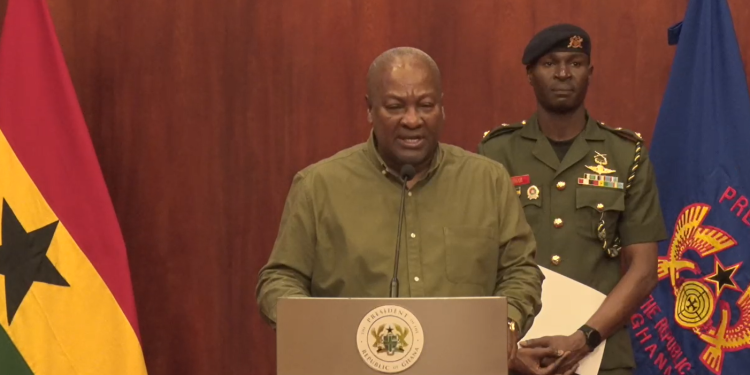In a move aimed at tightening fiscal oversight and expediting the prosecution of financial misconduct, President John Mahama convened a high-level meeting Monday with the Chief Justice, Attorney-General, and Auditor-General to advance enforcement of the Auditor-General’s findings.
According to a government statement issued October 20, the meeting resulted in a pivotal agreement to establish dedicated courts tasked specifically with adjudicating cases arising from audit reports. These courts will focus on enforcing surcharges, disallowances, and prosecuting financial offences linked to public sector mismanagement.
The creation of audit-specific courts marks a significant step in the Mahama administration’s broader anti-corruption drive. Officials say the initiative is intended to fast-track the recovery of misappropriated funds and strengthen accountability mechanisms within public institutions.
“This is about restoring integrity to public financial management,” a senior government official said. “We are putting systems in place to ensure that financial infractions are not just documented, but decisively acted upon.”
By streamlining legal proceedings around audit infractions, the new system is expected to deter the misuse of public resources and bolster investor confidence in the country’s governance framework. The move follows years of criticism over delayed or ineffective enforcement of audit findings, often resulting in little to no repercussions for public officials found culpable.
Under the plan, the Attorney-General’s office will prioritize prosecution of audit-related offences, while the judiciary allocates specific courts and judges to handle these cases exclusively.
Analysts say the success of the initiative will hinge on consistent political will, adequate resourcing of the courts, and transparent case tracking.
The government has positioned the measure as part of a wider public financial management reform agenda, amid growing domestic and international pressure to curb corruption and improve the stewardship of state funds.














